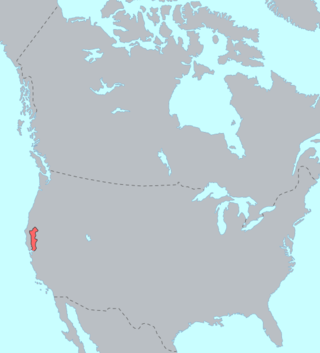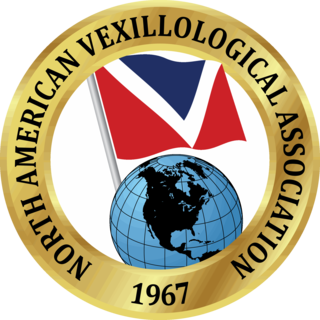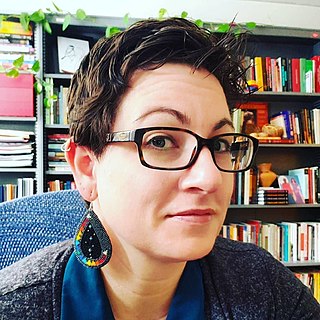External links
| International | |
|---|---|
| National | |
| | This article related to the Indigenous languages of the Americas is a stub. You can help Wikipedia by expanding it. |
| | This article about area studies is a stub. You can help Wikipedia by expanding it. |
The Society for the Study of the Indigenous Languages of the Americas (SSILA) is an international organization founded in 1981 devoted to the study of the indigenous languages of North, Central, and South America.
SSILA has an annual winter meeting held in association with the Linguistic Society of America's annual conference. Summer meetings are held in alternate years at venues near the LSA's Summer Institute. Presentations at SSILA meetings may be made in English, Spanish, Portuguese, or an Indigenous American language.
Each year, SSILA accepts nominations for three awards, which are presented at the annual meeting. The Mary R. Haas Book Award is presented for an outstanding unpublished manuscript that makes a significant substantive contribution to our knowledge of native American languages. The Ken Hale Prize is presented in recognition of a scholar's outstanding community language work and commitment to the documentation, maintenance, promotion, and revitalization of indigenous languages in the Americas.
The third prize was established to honor SSILA's founder, Victor Golla, who served as Secretary – Treasurer through 2007. The Golla Prize is awarded to scholars who show a significant history of both linguistic scholarship and service to the scholarly community.
SSILA issues two online publications: the quarterly SSILA Newsletter and the occasional SSILA Bulletin.

Penutian is a proposed grouping of language families that includes many Native American languages of western North America, predominantly spoken at one time in British Columbia, Washington, Oregon, and California. The existence of a Penutian stock or phylum has been the subject of debate among specialists. Even the unity of some of its component families has been disputed. Some of the problems in the comparative study of languages within the phylum are the result of their early extinction and limited documentation.

The Wintun are members of several related Native American peoples of Northern California, including the Wintu (northern), Nomlaki (central), and Patwin (southern). Their range is from approximately present-day Lake Shasta to San Francisco Bay, along the western side of the Sacramento River to the Coast Range. Each of these tribes speak one of the Wintuan languages. Linguistic and archaeological evidence suggests that the Wintun people probably entered the California area around 500 AD from what is now southern Oregon, introducing bow and arrow technology to the region.

The Canadian Mathematical Society is an association of professional mathematicians dedicated to the interests of mathematical research, outreach, scholarship and education in Canada. It serves the national community through the publication of academic journals, community bulletins, and the administration of mathematical competitions.
Atsugewi is a recently extinct Palaihnihan language of northeastern California spoken by the Atsugewi people of Hat Creek and Dixie Valley. In 1962, there were four fluent speakers out of an ethnic group of 200, all elderly; the last of them died in 1988. The last fluent native speaker was Medie Webster; as of 1988, other tribal members knew some expressions in the language. For a summary of the documentation of Atsugewi see Golla.

The Linguistic Society of America (LSA) is a learned society for the field of linguistics. Founded in New York City in 1924, the LSA works to promote the scientific study of language. The society publishes three scholarly journals: Language, the open access journal Semantics and Pragmatics, and the open access journal Phonological Data & Analysis. Its annual meetings, held every winter, foster discussion amongst its members through the presentation of peer-reviewed research, as well as conducting official business of the society. Since 1928, the LSA has offered training to linguists through courses held at its biennial Linguistic Institutes held in the summer. The LSA and its 3,600 members work to raise awareness of linguistic issues with the public and contribute to policy debates on issues including bilingual education and the preservation of endangered languages.

The North American Vexillological Association (NAVA) is a membership organization devoted to vexillology, the study of flags. It was founded in 1967 by American vexillologist Whitney Smith (1940–2016), and others. Its membership of 1,000+ comprises flag scholars, enthusiasts, designers, collectors, conservators, educators, merchants, manufacturers, historians, and hobbyists.

Wintuan is a family of languages spoken in the Sacramento Valley of central Northern California.
The Association for Asian Studies (AAS) is a scholarly, non-political and non-profit professional association focusing on Asia and the study of Asia. It is based in Ann Arbor, Michigan, United States.

Northern Pomo is a critically endangered Pomoan language, formerly spoken by the indigenous Pomo people in what is now called California. The speakers of Northern Pomo were traditionally those who lived in the northern and largest area of the Pomoan territory. Other communities near to the Pomo were the Coast Yuki, the Huchnom, and the Athabascan. Ukiah High School first began offering Northern Pomo in the Fall 2020.
The American Name Society(ANS) is a non-profit organization founded in 1951 to promote onomastics, the study of names and naming practices, both in the United States and abroad. The organization investigates cultural insights, settlement history, and linguistic characteristics revealed in names.

The Association for Slavic, East European, and Eurasian Studies (ASEEES) is a scholarly society "dedicated to the advancement of knowledge about Central Asia, the Caucasus, Russia, and Eastern Europe in regional and global contexts." The ASEEES supports teaching, research, and publication relating to the peoples and territories within this area.
The African Studies Review is a peer-reviewed academic journal covering African studies. The journal also publishes book and film reviews.
Frances Jane Hassler Hill was an American anthropologist and linguist who worked extensively with Native American languages of the Uto-Aztecan language family and anthropological linguistics of North American communities.
Victor Golla (1939–2021) was a linguist and a leading expert on the indigenous languages of California and Oregon, especially the Pacific Coast Athabaskan subgroup of the Athabaskan language family and the languages of the region that belong to the Penutian phylum. He was emeritus professor of anthropology at Humboldt State University and lived in Trinidad, California.

The American Studies Association (ASA) is a scholarly organization founded in 1951. It is the oldest scholarly organization devoted to the interdisciplinary study of U.S. culture and history. The ASA works to promote meaningful dialogue about the United States of America, throughout the U.S. and across the globe. Its purpose is to support scholars and scholarship committed to original research, innovative and effective teaching, critical thinking, and public discussion and debate.
The Australian Linguistic Society (ALS) is an academic association for linguists. It was established in 1967 with the primary goal of furthering interest in and support for linguistics research and teaching in Australia. The Australian Linguistic Society also publishes a peer-reviewed academic journal, the Australian Journal of Linguistics, holds an annual conference, an occasional linguistics institute, and has developed and endorsed several policies and statements relating to language and linguistics.
Canadian Indigenous Languages and Literacy Development Institute (CILLDI) - an intensive annual "summer school for Indigenous language activists, speakers, linguists, and teachers" - hosted at the University of Alberta, Edmonton - is a "multicultural, cross-linguistic, interdisciplinary, inter-regional, inter-generational" initiative. CILLDI was established in 1999 with one Cree language course offered by Cree speaker Donna Paskemin. By 2016 over 600 CILLDI students representing nearly 30 Canadian Indigenous languages had participated in the program and it had become the "most national of similar language revitalization programs in Canada aimed at the promotion of First Peoples languages." CILLDI - a joint venture between the University of Alberta and the University of Saskatchewan - responds to "different sociolinguistic situations in language communities under threat" and includes three faculties at the University of Alberta in Edmonton - Arts, Education, and Native Studies. CILLDI provides practical training to students which is "directly implemented back in the community." Initiatives like CILLDI were formed against the backdrop of a projection of a catastrophic and rapid decline of languages in the twenty-first century.
Verna Jane Kirkness, is a Cree scholar, pioneer and lifelong proponent of indigenous language, culture and education who has been influential in Canadian indigenous education policy and practice. She is an associate professor emeritus at the University of British Columbia and resides in Winnipeg. Kirkness has received numerous awards for her outstanding contributions spanning five decades including the Order of Canada in 1998. Kirkness had an important impact on Canadian indigenous education policy and practice. She is the author of "numerous books and articles on the history of Indigenous education." The University of Manitoba's Verna J. Kirkness Science and Engineering Education Program was established in 2009 and in November 2013 a native studies colloquium honoured her as a national leader in education.

Jenny L. Davis is an American linguist, anthropologist, and poet. She is an Associate Professor of Anthropology, American Indian Studies, and Gender & Women's Studies at the University of Illinois at Urbana–Champaign where she is the director of the American Indian Studies Program. Her research is on contemporary Indigenous languages and identity, focusing on Indigenous language revitalization and Indigenous gender and sexuality, especially within the Two-Spirit movement.